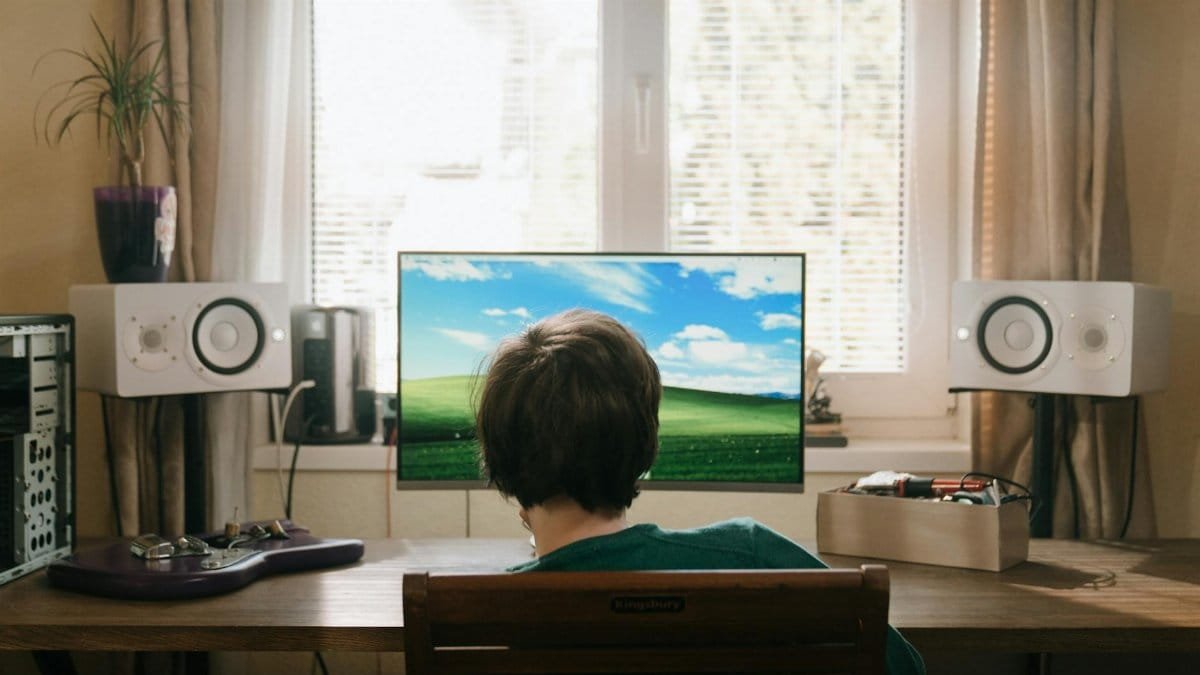Sunlight filtered through the trees as a small group gathered at a local park in Portland, Oregon, their phones tucked away in bags, forgotten for the moment. Laughter mingled with the rustle of leaves as they prepared for a day without screens, a deliberate escape from the constant ping of notifications. This scene, repeated across the country, captures a growing movement: tech free weekend challenges. For many, it’s a chance to step back from the digital grind and reconnect with something more tangible. In an era where Americans spend an average of 7 hours a day on screens, according to a 2023 report, the urge to unplug feels almost radical. Yet, it’s a response to a shared fatigue—a need to reset not just devices, but minds and bodies. What follows are eight distinct challenges to help anyone reclaim their weekends and, perhaps, a piece of calm.
1. The Nature Immersion Challenge

Start with something primal: a full day in nature, no gadgets allowed. Whether it’s a hike through the Appalachian Trail or a quiet afternoon by a lake in Minnesota, the goal is simple—let the natural world take center stage. Studies from the U.S. Forest Service show that time in green spaces can lower cortisol levels, the body’s main stress hormone. Leave the phone at home or in the car. Notice the sound of gravel underfoot, the sharpness of pine in the air. One hiker in a recent anonymous online discussion described the relief of “hearing my own thoughts for the first time in weeks.” It’s not just about escaping tech; it’s about rediscovering what’s been drowned out by endless scrolling.
This challenge doesn’t require a grand expedition. Even a local park can work. The key is intention—commit to observing, not documenting. No photos, no posts. Just be there. By the end, the nervous system often feels less like a live wire and more like a steady hum.
2. The Analog Reading Marathon

Remember the weight of a real book? This challenge is about diving into one—or a stack—without the distraction of a tablet or e-reader. Head to a library or dust off a forgotten novel from the shelf. A 2021 study by the Pew Research Center noted that digital overload often exacerbates anxiety, while physical books can offer a tactile, grounding escape. Set a cozy spot—maybe a window seat with a blanket—and aim for a few uninterrupted hours. The rustle of pages turning can feel like a small rebellion against the swipe culture of 2025.
Variety helps here. Mix a gritty memoir with a light mystery. If focus wanders, that’s fine; let the mind drift without a screen to pull it back. It’s less about finishing the book and more about savoring the slowness. Many find their jittery energy starts to settle by the second chapter.
3. The Kitchen Experiment Day

“What’s for dinner?” one friend asked another during a recent weekend gathering, flipping through a stained family cookbook instead of Googling a recipe. That’s the spirit of this tech free weekend challenge: cook or bake something from scratch, no apps or online tutorials allowed. Dig out an old recipe card or rely on instinct. Whether it’s a lopsided cake or a hearty stew, the process—chopping, stirring, tasting—demands full presence. Research from the Harvard T.H. Chan School of Public Health suggests mindful activities like cooking can reduce stress by focusing the mind on sensory tasks.
Mess-ups are part of the charm. Burnt edges or overseasoned soups become stories, not failures. Invite someone over if possible; shared laughter over a botched dish beats a solo scroll through food blogs any day. The kitchen becomes a sanctuary, and the nervous system gets a rare break from digital noise.
4. The Board Game Revival

Gather a few friends or family for a night of board games, the kind that come in worn-out boxes with tiny plastic pieces. Think Monopoly, Scrabble, or even an old deck of cards. No apps, no online leaderboards—just face-to-face banter and maybe a little friendly cheating. A report from the National Institutes of Health highlights how in-person social interaction can boost mental health, countering the isolation often fueled by tech overuse. Set up at the kitchen table, dim the lights, and let the arguments over rules unfold naturally.
This challenge isn’t about winning; it’s about connection. Notice how voices rise with excitement, how hands gesture wildly over a bad roll. Hours pass without a single notification. For many, the nervous system unwinds in the warmth of unscripted, unplugged play.
5. The Neighborhood Wander

Lace up some comfortable shoes and explore your own backyard—literally or figuratively. Wander your neighborhood or a nearby town with no agenda, no GPS, no earbuds. Let curiosity lead. Notice the crooked mailbox on the corner, the mural you’ve driven past a hundred times. Studies suggest that unstructured walking can calm the mind, easing the overstimulation of constant connectivity. Without a screen to dictate the path, the world feels bigger, more immediate.
Stop to chat with a neighbor if the moment feels right. Or just soak in the quiet. One person might find themselves lingering by a community garden, watching bees buzz between flowers. Another might stumble on a garage sale and a story from a stranger. The point is presence. Tech free weekend challenges like this strip away the digital filter, letting raw experience reset frazzled nerves.
6. The Handwritten Connection

When was the last time a pen scratched across paper for more than a grocery list? This challenge is about writing—letters, postcards, or even a journal entry—by hand. Send a note to a friend across the country or jot down thoughts about the day. The slowness of it, the imperfection of smudged ink, forces a different kind of focus. Research indicates that handwriting engages the brain in unique ways, often fostering calm and clarity compared to typing.
Don’t overthink the words. Scribble a memory, a hope, a silly doodle in the margin. Mail it if you can; the act of dropping a letter in a blue box feels oddly triumphant in 2025. Or keep it private, a quiet dialogue with yourself. Either way, the nervous system often softens, unburdened by the pressure of instant replies or likes.
7. The Silent Morning Retreat

Begin a weekend day with deliberate silence—no music, no podcasts, no buzzing devices. Wake up and resist the urge to check anything. Sit with a cup of coffee or tea, stare out a window, or lie back and listen to the house creak. This isn’t meditation in the formal sense; it’s just stillness. The absence of input can feel jarring at first, but it often reveals how much mental clutter tech creates. Many report a sense of spaciousness by mid-morning, as if the mind has finally exhaled.
Keep it simple. If thoughts race, let them. If boredom creeps in, lean into it. The goal of tech free weekend challenges like this isn’t to achieve some enlightened state but to give overworked nerves a breather. By noon, the world often feels less urgent, less loud, even if just for a little while.
8. The Crafty Hands-On Project

End with something tactile: a project that requires hands, not screens. Knit a scarf, build a birdhouse, or sketch a still life of fruit on the counter. It doesn’t matter if the result is gallery-worthy; the act of creating without digital assistance is the point. Engaging in manual tasks can lower stress markers, offering a counterpoint to the passive consumption of tech. Pick something small if time is tight—a origami crane, a painted rock. Or go bigger if the mood strikes.
Notice the texture of yarn, the smell of wood glue, the frustration of a crooked line. These sensory details anchor the mind in the moment. For many, this kind of challenge reveals how much calmer life can feel when the digital tether is cut, even temporarily. The nervous system resets, one clumsy stitch at a time.
